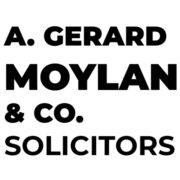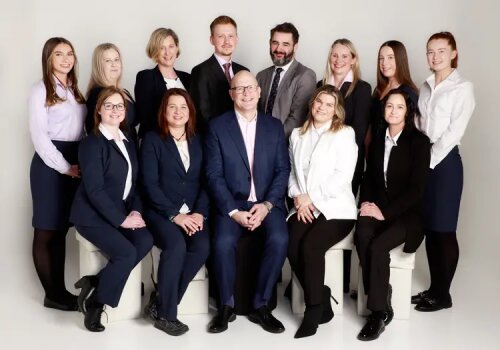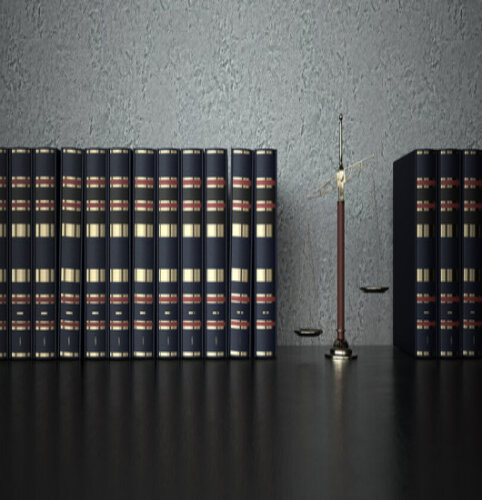Best Appeal Lawyers in Dublin
Share your needs with us, get contacted by law firms.
Free. Takes 2 min.
List of the best lawyers in Dublin, Ireland
About Appeal Law in Dublin, Ireland
Appeal law in Dublin, Ireland involves the process of reviewing and potentially overturning decisions made by lower courts or tribunals. The appeal process is an essential part of the justice system, providing an opportunity for individuals to seek redress if they believe a legal error has occurred. Appeals can be made in various types of cases, including civil, criminal, family, and administrative law. The Court of Appeal and the Supreme Court are the primary appellate courts in Dublin, handling cases that require a higher level of judicial scrutiny.
Why You May Need a Lawyer
There are several common situations in which you may require legal assistance for an appeal:
- Unfavorable Judgment: If you have received an unfavorable judgment in a lower court and believe that a legal error was made, you may wish to appeal the decision.
- Seeking Clarification: Sometimes, legal issues are complex, and an appeal may be necessary to seek clarification or a precedent-setting decision.
- Challenging Evidence: If you believe that new evidence or misinterpretation of existing evidence impacted your case, an appeal could be necessary.
- Procedural Errors: Procedural mistakes or biases in the lower court's handling of your case might also warrant an appeal.
Local Laws Overview
The legal framework for appeals in Dublin, Ireland is governed by several key pieces of legislation and judicial guidelines. Notable aspects of appeal law include:
- The Court of Appeal Act 2014: This act established the Court of Appeal and outlines its jurisdiction and procedural rules.
- Criminal Procedure Act 1993: This act provides the framework for appealing criminal convictions and sentences.
- Civil Procedure Rules: These rules govern the practice and procedure of civil appeals, including deadlines, documentation, and grounds for appeal.
- The High Court: The High Court handles significant civil and criminal appeals, including judicial reviews.
Frequently Asked Questions
1. What is the time limit for filing an appeal in Dublin?
The time limit for filing an appeal varies depending on the type of case. Generally, criminal appeals must be filed within 28 days, while civil appeals typically have a 21-day deadline from the date of judgment.
2. Can I introduce new evidence during an appeal?
In most cases, new evidence is not permitted during an appeal. However, exceptions may be made if the evidence is significant and could not have been presented during the original trial.
3. What are the grounds for an appeal?
Common grounds for appeal include legal errors, misinterpretation of evidence, procedural mistakes, and instances of unfair bias or misconduct in the lower court’s decision-making process.
4. What documents are needed to file an appeal?
Necessary documents typically include the notice of appeal, a transcript of the lower court’s proceedings, the original judgment, and any additional evidence supporting the grounds for appeal.
5. How much does it cost to file an appeal?
The cost of filing an appeal can vary. Court fees and legal costs can be substantial, so it’s important to consult with a solicitor for an estimate of the expenses involved.
6. Can I represent myself in an appeal?
While it is possible to represent yourself, it is highly recommended to seek legal representation due to the complexity of appeal procedures and the importance of legal expertise.
7. How long does the appeal process take?
The duration of the appeal process can vary widely. It can take several months to over a year, depending on the complexity of the case and the court's schedule.
8. What happens if I lose an appeal?
If you lose an appeal, the original court’s decision stands. However, in some cases, further appeal to a higher court, such as the Supreme Court, may be possible.
9. Are appeal hearings open to the public?
Yes, appeal hearings are generally open to the public, unless the court orders otherwise for specific reasons such as confidentiality or privacy concerns.
10. Can the appeal court change my sentence?
Yes, if a criminal appeal is successful, the appeal court has the authority to alter the sentence, including reducing or increasing it, depending on the nature of the appeal.
Additional Resources
For more information and assistance with appeals, consider reaching out to the following resources:
- Citizens Information: Provides comprehensive details on legal rights and procedures.
- The Courts Service of Ireland: Official body providing information on the court system, including appeals.
- Free Legal Advice Centres (FLAC): Offers free legal advice and information to the public.
- The Bar of Ireland: Professional body of barristers offering specialized legal expertise.
Next Steps
If you require legal assistance with an appeal, follow these steps:
- Consult a Solicitor: Seek initial legal advice to understand your options and the feasibility of your appeal.
- Gather Documentation: Collect all relevant documents, including the judgment, transcripts, and any evidence to support your appeal.
- File the Appeal: Work with your solicitor to prepare and file the necessary paperwork within the applicable deadlines.
- Prepare for Hearing: Your solicitor will help you prepare for the appeal hearing, including drafting legal arguments and submissions.
- Attend the Hearing: Be present at the appellate court hearing to present your case with your solicitor.
Engaging with a qualified legal professional is crucial throughout this process to ensure that your appeal is effectively presented and that your legal rights are protected.
Lawzana helps you find the best lawyers and law firms in Dublin through a curated and pre-screened list of qualified legal professionals. Our platform offers rankings and detailed profiles of attorneys and law firms, allowing you to compare based on practice areas, including Appeal, experience, and client feedback.
Each profile includes a description of the firm's areas of practice, client reviews, team members and partners, year of establishment, spoken languages, office locations, contact information, social media presence, and any published articles or resources. Most firms on our platform speak English and are experienced in both local and international legal matters.
Get a quote from top-rated law firms in Dublin, Ireland — quickly, securely, and without unnecessary hassle.
Disclaimer:
The information provided on this page is for general informational purposes only and does not constitute legal advice. While we strive to ensure the accuracy and relevance of the content, legal information may change over time, and interpretations of the law can vary. You should always consult with a qualified legal professional for advice specific to your situation.
We disclaim all liability for actions taken or not taken based on the content of this page. If you believe any information is incorrect or outdated, please contact us, and we will review and update it where appropriate.













